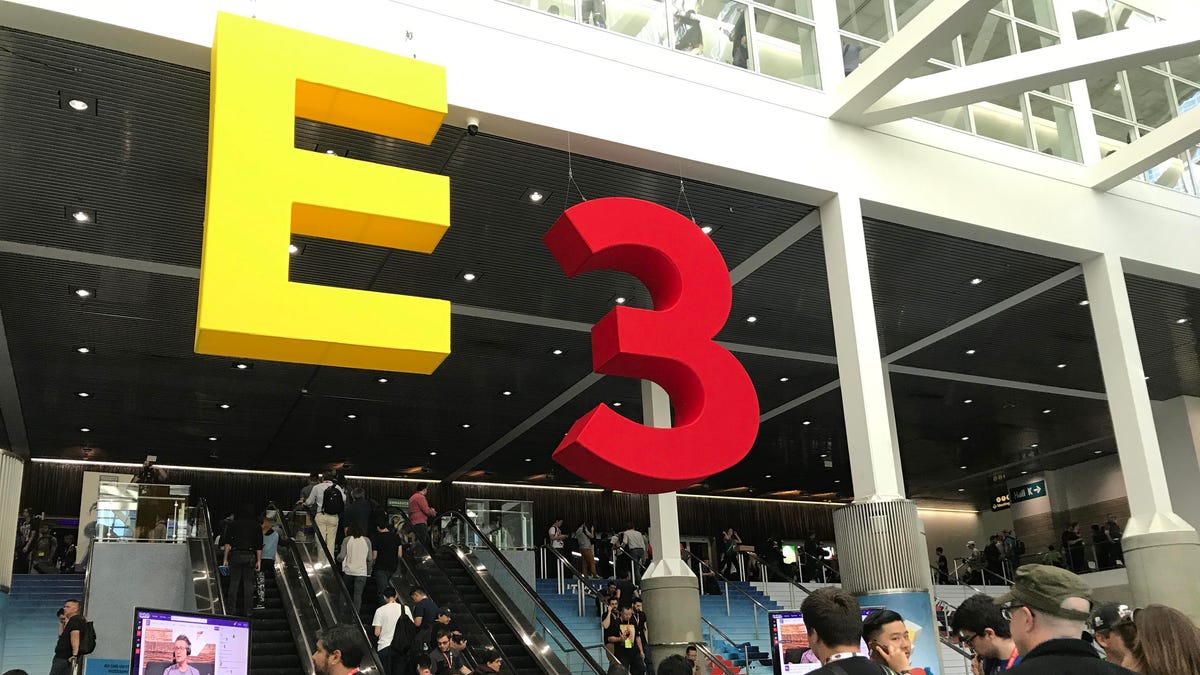The Electronic Entertainment Expo, better known as E3, the long-running annual gaming show that brought together the world’s game publishers, retailers and press to Los Angeles, is dead.
“After more than two decades of serving as a central showcase for the US and global video game industry, ESA has decided to end E3,” the Electronic Software Association said in a statement on Tuesday. “ESA’s focus and priority remain advocating for ESA member companies and the industry workforce who fuel positive cultural and economic impact every day.”
Analysts who spoke with CNET cited withdrawals from major publishing partners, along with increased competition from other events, as reasons for the event’s demise.
The end of E3 comes after publishers began slowly pulling back from the show over the past decade. Nintendo stopped doing press conferences at E3 in 2013, instead opting to upload prerecorded videos online. Both Microsoft and EA chose to have off-site events during E3, moving people away from the Los Angeles Convention Center. A major gut punch came in 2019 when Sony decided to pull out of E3 altogether.
With more companies hosting showcases outside of E3, the event’s relevance slowly diminished. Starting in 2020, during the COVID-19 pandemic, E3 canceled or postponed in-person shows, though it did hold an online-only event in 2021. In 2022, ESA said that E3 would return the following year, but ultimately canceled this year’s show due to a lack of interest.
E3’s decline coincided with the rise of Summer Game Fest, a series of game reveal events hosted by veteran industry insider Geoff Keighley. Summer Game Fest started online, and in 2022, hosted its first in-person event in Los Angeles, conspicuously occurring during E3’s usual event window.
Read more: Game Industry Insider Geoff Keighley Lays Out His Vision for Showcase Events
A world without E3 could lead to more canned remarks
While later E3 events would open their doors to let fans experience the displays and demos on the show floor, the convention had traditionally been the launchpad for news from game companies big and small. Without an in-person industry event, gamers looking for announcements and updates on upcoming titles will have to lean more on prerecorded presentations and press releases from major companies like Sony, Microsoft, Nintendo and EA, with fewer opportunities for press interviews and off-the-cuff remarks.
“The real importance of E3 is that everyone was there all at once,” said Michael Pachter, an analyst at Wedbush Securities. Unlike the Game Developers Conference or Tokyo Game Show, E3 attracted CEOs and CFOs from across the industry, according to Pachter. This also meant that mainstream press attended the event, attracting a ton of consumer attention.
E3 began in 1995 as a trade show meant to bring in retailers to help coordinate for the holiday shopping season. The show evolved to a premiere event that attracted mainstream press from around the world with bigger and flashier press conferences. As the retail environment changed, with more games going online and major titles arriving outside of the holiday shopping season, E3’s central role waned. Having one show in the summer didn’t really work for publishers planning to release games the following March. That prompted companies to showcase titles at their own events instead. The last in-person E3 was in 2019, with the final E3 in 2021, though it was online-only.
“I notice companies being a lot less transparent and really wanting to control the message,” said David Cole, lead analyst at DFC Intelligence. With companies sticking to online presentations and not making executives and developers readily available, it’s harder for the press to ask tough questions. This is partly by design so that companies can control their own message, according to Cole. The reduced transparency makes an analyst’s job more difficult as well.
“I can’t get honest answers from these companies,” said Cole. “It makes it tough because you’re just basically going with their own hype of whatever they’re saying in public and you kind of got to go around and really dig to get the true story.”
Nintendo, Microsoft and Sony didn’t immediately reply to a request for comment.
Apart from releasing videos and sending out press releases, companies will continue to lean on online influencers to guide public opinion. While some influencers are transparent with their level of access, others may take payment from publishers to showcase games, something that trusted journalistic organizations don’t do. Cole said companies leaning on influencers has been happening for a while and it’ll take more due diligence by consumers to catch on to how online hype is potentially being manipulated by marketing teams.
“The companies that ‘pulled out’ (namely Sony) made a huge mistake and killed the show,” said Pachter. “EA was stupid moving its competing show across town on the same days and Microsoft was stupid moving to the Peacock (formerly Microsoft) theater. I am hopeful that the ESA recognizes the importance of the show and brings it back, but am not optimistic.”

